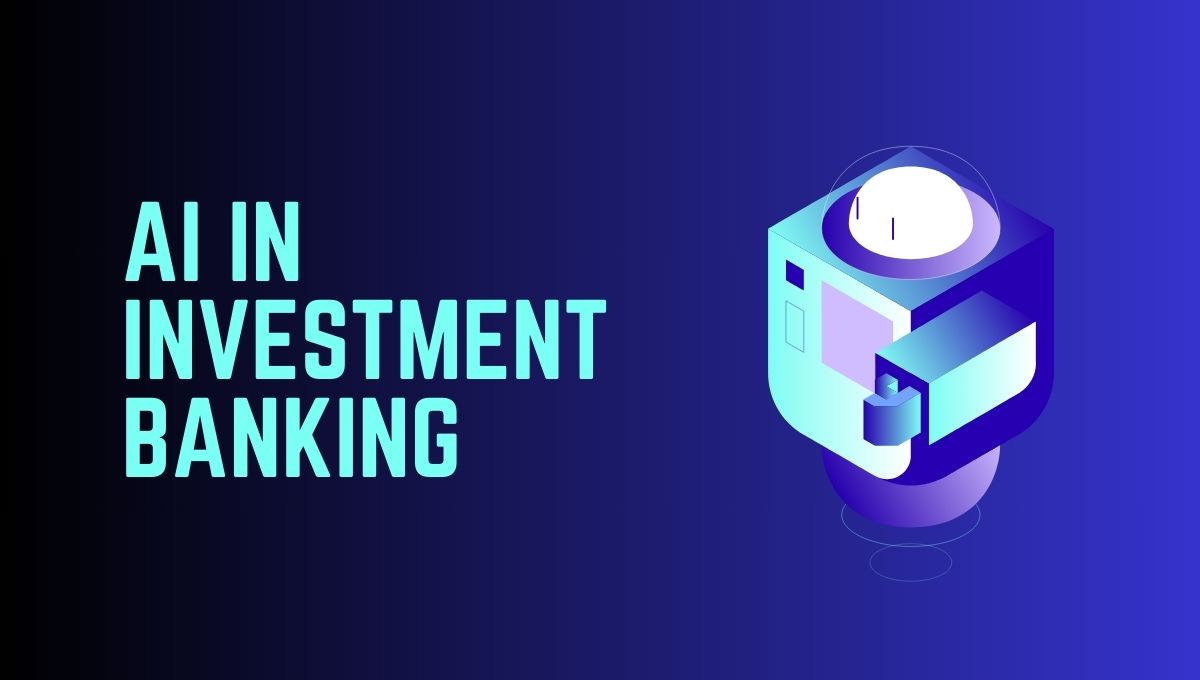The world of investment banking is changing so dramatically with technology today. For so many decades, methods of executing trades, assessing risk, and managing customer relationships have now been displaced by AI in investment banking, blockchain applications in finance, and cloud computing in banking systems.
Investment banks, from dependences on human expertise and manual processes, now employ AI-driven algorithms, decentralised finance solutions, and cloud-powered infrastructures. These technologies help reduce costs, improve efficiency, and provide deeper insights into financial markets.
Keeping up with the pace of change is no longer a choice but a necessity for finance professionals. People who want to stay relevant in this new AI-driven financial landscape have began to believe that investment banking courses are now a must.
Let’s dig how AI, Blockchain, and cloud computing transform Investment Banking and why, therefore, their upskilling is important.
Investment Banking Role: AI
AI is perhaps the most massive disruption ever seen in the investment banks. They can process goliath amounts of data sets, have faster decisions made, and optimise customer interactions too.
The Impact of AI in Trading & Investment Strategy
Investment banks are increasingly using AI systems to enhance their trading accuracy and effectiveness.
- Algorithmic trading: AI-based automated systems execute orders in milliseconds on real-time market movements with data-driven logic.
- Market Sentiment Analysis: AI scans social media, news, and financial reports to determine market trends.
- Portfolio Optimisation: AI models provide portfolio suggestions according to risk appetite and historical data.
Statistics: According to PwC, AI-driven automation in the banking sector is expected to save more than $450 billion by 2030.
AI in Risk Management and Fraud Detection
Risk assessment is one of the most important functions in investment banking, and AI has changed the way banks assess financial risks.
- Risk Modelling: AI processes huge volumes of financial data to predict market fluctuations and credit risks.
- Fraud Detection: AI detects suspicious activities in transactions, thereby preventing money laundering and cyber threats.
- Regulatory Compliance: AI enables banks to follow the changing financial regulations by real-time monitoring.
Deloitte states that AI-based fraud detection systems have reduced financial fraud cases by 40% in banks that employ them.
AI and Customer Experience in Investment Banking
AI is not only confined to the back-end functions of investment banking but also enhances customer experience.
- AI-based Chatbots provide 24/7 support to clients.
- RoBo-Advisors assists in offering investment recommendations to users based on personal data.
- NLP allows investment banks to process the questions that clients have so as to provide automated responses.
Since all the information regarding investment banking is being revolutionised today with AI, one needs to learn some related training to update one’s knowledge.
Blockchain Solutions in Finance
Investment banking is helping manage financial transactions on blockchain technology for transparency, security, and decentralization of transactions.
How Blockchain is being Applied in Investment Banking
Blockchain has been applied in many finance-related operations, such as:
- Settlements Trade: It allows the settlement of transactions from days to seconds.
- Smart Contracts: The execution of contracts without the presence of an intermediary.
- Cross-Border Transactions: It reduces the transaction fees and increases the velocity of processing
A World Economic Forum report stated that blockchain’s adoption in the banking sector might save $20 billion in infrastructural costs a year.
Why Blockchain Improves Security in Investment Banking
Investment banking may incur a certain level of security. The risks are cut down by blockchain via the following,
- Data Tampering Is Eliminated: Transactions recorded in the most impenetrable ledger.
- Maximising Transparency: It enables network parties to validate transactions, hence removing fraud cases.
- Decentralised Control: Nobody now owns financial records. This way, cyber hacking of the system is reduced.
IBM declares that 91% of all banks invest in blockchain solutions to leverage on security mechanisms and avoid operational inefficiencies.
Video Recommendation: How Blockchain is Changing Investment Banking
Cloud Computing in Banking Systems
Cloud computing is a necessary requirement for investment banks since the service enables organisations to store huge amounts of data without thinking about infrastructure and IT maintenance.
Advantages of Cloud Computing in Investment Banking
- Save on IT Infrastructure: The banks save money on IT infrastructure and maintenance.
- Scalability On Demand: The institutes can go up or down with respect to the data storage requirements
- Improved Security: Greater encryption by cloud service providers will ensure that sensitive financial information is safe
Real Time Data Processing and Analytics
Real-time data processing by cloud computing will facilitate real-time processing. Investment banks can :
- Develop market reports in real time.
- Instruct the investors with their current standing on the investment ladder.
- Refine forecasting at the time of investment decisions.
Why Investment Banking Professionals Must Upskill
Because of the recent and exponential rise in technological advancements, upgrading one’s skills about the latest trends has become a necessity because AI, Blockchain and Cloud Computing are revolutionising the domain.
Certified Investment Banking Operations Professional (CIBOP) Program
Our CIBOP Program is a passage with which finance professionals up their game in the following space:
- AI-based trading strategies
- Blockchain usage in security
- Cloud computing for banking infrastructure
For more about CIBOP click on the link below: https://imarticus.org/certified-investment-banking-operations-program/
FAQs on Technology in Investment Banking
- Applications of AI in investment banking?
AI applies in the form of algorithms on trading, risk assessment, and automation in customer service.
- Applications of blockchain in finance?
Blockchain allows making transactions safer, reduces fraud rates, and faster settlements.
- How is cloud computing impacting the banking systems?
Cloud computing is scalable, cost-effective, and data security.
- What investment banking courses focus on technology?
Courses like CIBOP teach AI, blockchain, and cloud computing in finance.
- Is blockchain an application used commonly in investment banking?
Many banks are using blockchain, but their full adoption is still in process.
- Can AI replace the human investment banker?
AI enhances decision-making but cannot replace human experience.
- How does AI help in risk management?
AI uses data analytics and trend forecasting to predict market risks.
- Is a cloud-based banking system secure?
Yes, it has multi-layered encryption and access protection protocols.
- What are smart contracts in investment banking?
Smart contracts allow financial agreements to be automatically executable.
- How do professionals upskill in AI-driven investment banking?
By learning courses like CIBOP and real-time exposure to AI.
Conclusion
Technology has re-engineered investment banking with the ray of speed, security, and precision in data. The combination of AI, blockchain, and cloud computing forms the transformation in motion.
Keypoints
- AI analytics, blockchain, and cloud computing form the new face of investment banking
- Investment bankers need to upskill for the digital future
- Financing technology can be mastered with courses like CIBOP
Want a future-proofed investment banking career? Begin with CIBOP and start your career in investment banking.


